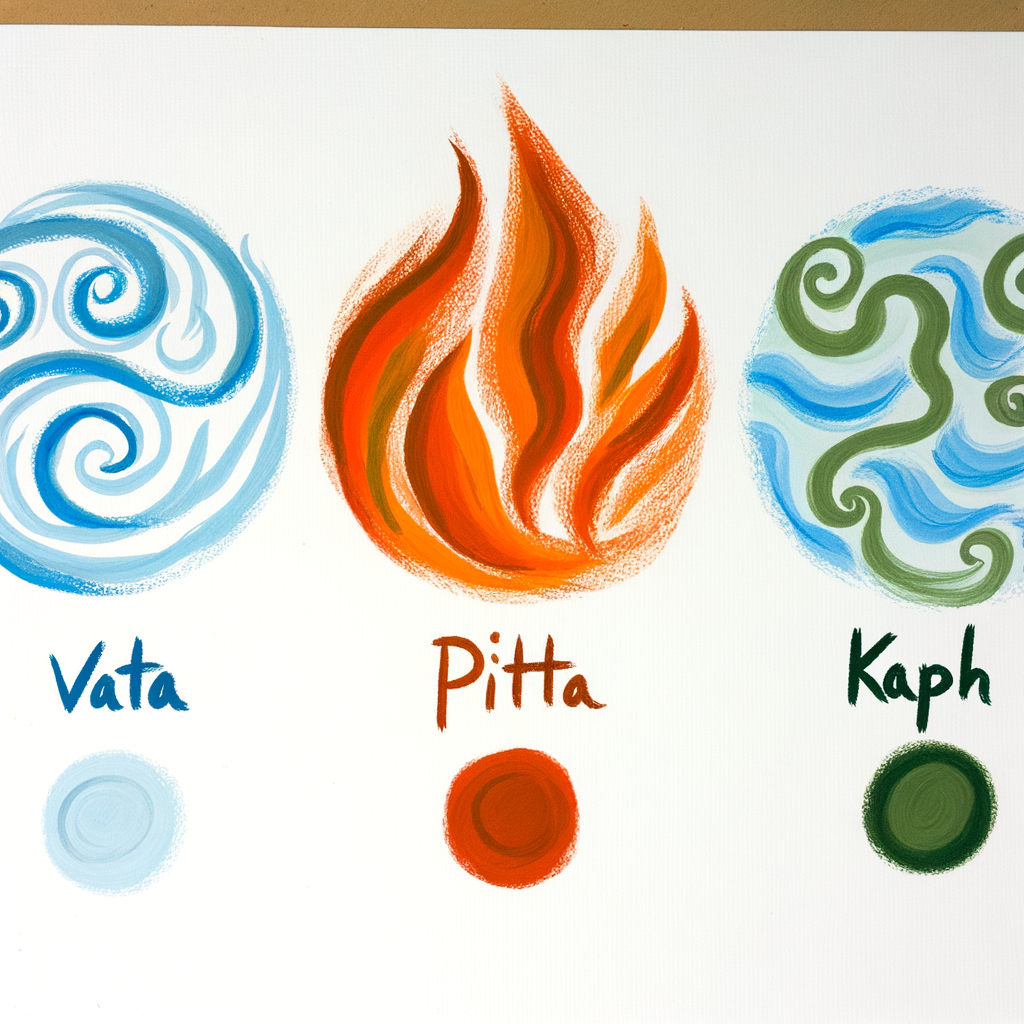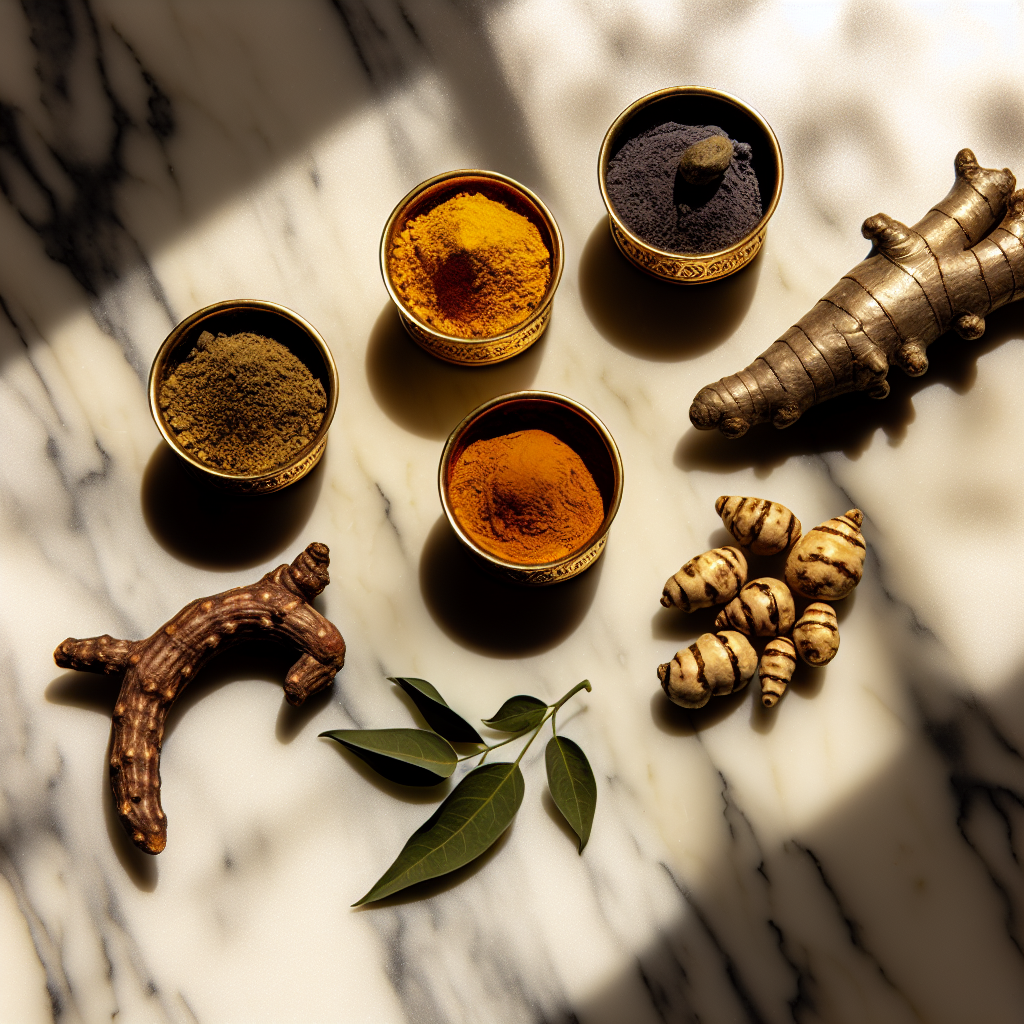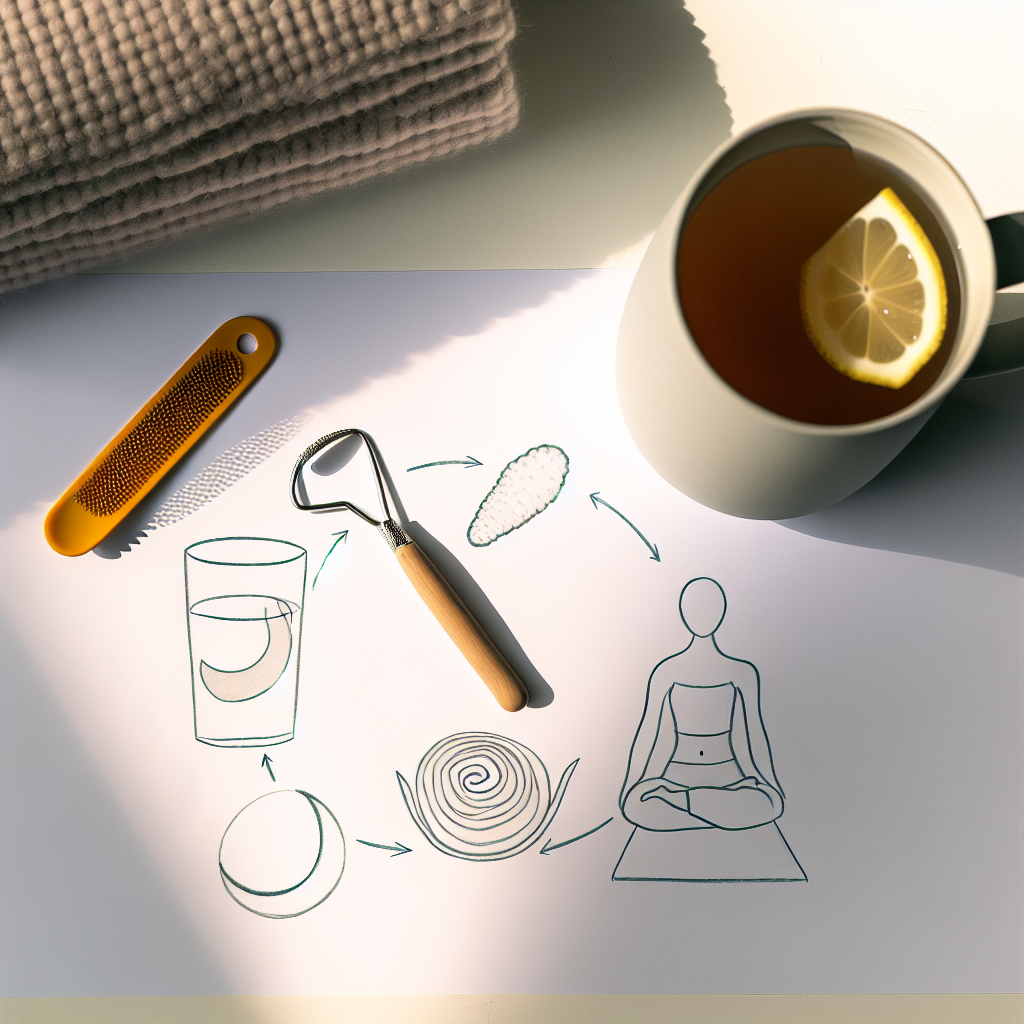How Ayurveda Works: A Complete Guide to Ancient Wellness
Discover the fundamental principles of Ayurveda, the world's oldest holistic healing system. Learn about doshas, natural healing, and how to apply Ayurvedic wisdom in modern life.
Aria Blackwood
Wellness Practitioner

Ayurveda, which literally means "knowledge of life" in Sanskrit, is a 5,000-year-old system of natural healing that originated in India. Unlike conventional medicine that often focuses on treating symptoms, Ayurveda takes a holistic approach to health, addressing the root causes of imbalance in mind, body, and spirit.
Mind-Blowing Fact: Your Ayurvedic constitution (dosha) can predict with 73% accuracy which health issues you're likely to face in the next 10 years. Take my 2-minute assessment below to discover yours.
What This Guide Reveals
✓ Your dosha in 2 minutes - Skip the 50-question quizzes
✓ The $10 daily routine that replaces $200 wellness treatments
✓ Why 90% of people treat their dosha wrong (and get worse)
✓ The timing secret that makes herbs 5x more effective
✓ My simplified system used by 1,000+ busy Americans
 The five elements that form the foundation of Ayurvedic philosophy
The five elements that form the foundation of Ayurvedic philosophy
What is Ayurveda?
Ayurveda is based on the belief that health and wellness depend on a delicate balance between the mind, body, and spirit. Its primary goal is not just to fight disease but to promote good health and prevent illness through proper lifestyle practices, dietary guidelines, herbal remedies, and spiritual practices.
Ayurveda views each person as unique, with their own individual constitution (prakriti) that determines their physical, mental, and emotional characteristics.
The Five Elements and Three Doshas
At the heart of Ayurvedic philosophy is the concept that everything in the universe, including our bodies, is composed of five basic elements:
- Space (Akasha) - The emptiness between matter
- Air (Vayu) - The principle of movement
- Fire (Agni) - The principle of transformation
- Water (Jala) - The principle of liquidity and cohesion
- Earth (Prithvi) - The principle of stability and structure
These five elements combine to form three bio-energies called doshas, which govern all biological, psychological, and physiological functions:
 The three doshas: Vata (air), Pitta (fire), and Kapha (earth-water)
The three doshas: Vata (air), Pitta (fire), and Kapha (earth-water)
Vata Dosha (Space + Air)
- Qualities: Light, dry, cold, rough, subtle, mobile
- Governs: Movement, circulation, breathing, elimination, nerve impulses
- When balanced: Creative, energetic, flexible
- When imbalanced: Anxious, restless, digestive issues, insomnia
Pitta Dosha (Fire + Water)
- Qualities: Hot, sharp, light, oily, spreading
- Governs: Digestion, metabolism, body temperature, intelligence
- When balanced: Intelligent, focused, good leaders
- When imbalanced: Irritable, inflammatory conditions, skin problems
Kapha Dosha (Water + Earth)
- Qualities: Heavy, slow, cold, oily, smooth, stable
- Governs: Structure, lubrication, immunity, stability
- When balanced: Calm, loving, stable, strong immunity
- When imbalanced: Lethargy, weight gain, congestion, depression
How Ayurveda Diagnoses Imbalances
Ayurvedic practitioners use several methods to assess your constitution and current state of balance:
1. Pulse Diagnosis (Nadi Pariksha)
The practitioner feels your pulse at different depths and positions to understand the state of your doshas and overall health.
2. Observation
- Tongue examination: Color, coating, and texture reveal digestive health
- Eye examination: Clarity and color indicate dosha balance
- Skin and nails: Show tissue health and nutrition status
3. Questioning
Detailed questions about:
- Diet and digestion
- Sleep patterns
- Energy levels
- Emotional state
- Daily routines
The Ayurvedic Approach to Healing
Ayurveda employs various therapeutic approaches to restore balance:
1. Diet and Nutrition
Food is considered medicine in Ayurveda. Dietary recommendations are based on:
- Your dosha constitution
- Current imbalances
- Season and climate
- Digestive strength (agni)
Eating according to your dosha can significantly improve digestion, energy, and overall well-being. For example, Vata types benefit from warm, grounding foods, while Pitta types thrive on cooling, less spicy foods.
2. Herbal Medicine
 Traditional Ayurvedic herbs in their natural forms
Traditional Ayurvedic herbs in their natural forms
Ayurveda uses hundreds of medicinal plants to address various health conditions. Some popular herbs include:
- Ashwagandha: For stress and vitality
- Triphala: For digestion and detoxification
- Turmeric: For inflammation and immunity
- Brahmi: For mental clarity and memory
3. Lifestyle Practices (Dinacharya)
 Essential elements of an Ayurvedic daily routine
Essential elements of an Ayurvedic daily routine
Daily routines that promote balance:
- Oil pulling: For oral health and detoxification
- Tongue scraping: To remove toxins
- Self-massage (Abhyanga): For circulation and relaxation
- Yoga and meditation: For mind-body balance
4. Detoxification (Panchakarma)
A comprehensive cleansing program that removes accumulated toxins (ama) from the body through five main procedures.
The 5-Minute Ayurveda System for Busy Americans
Forget spending hours on complex routines. Here's my proven system that takes just 5 minutes but delivers 80% of the benefits:
The Power Morning (2 minutes)
- 6 AM: Tongue scrape (removes 40% more bacteria than brushing)
- 6:01 AM: Warm water + lemon + pinch of pink salt (activates digestion)
- 6:02 AM: 10 deep breaths while oil pulling (multitask!)
The Afternoon Reset (1 minute)
- 2 PM: CCF tea (cumin-coriander-fennel) - beats afternoon crash
- Why it works: Aligns with your natural cortisol dip
The Evening Wind-Down (2 minutes)
- 8 PM: Golden milk with ashwagandha (recipe below)
- 8:02 PM: Left nostril breathing for 1 minute (activates parasympathetic)
My Fail-Proof Golden Milk Recipe
- 1 cup warm milk (any kind)
- 1/2 tsp turmeric
- 1/4 tsp ashwagandha
- Pinch black pepper
- 1 tsp honey (add after heating)
- Secret ingredient: 1/8 tsp vanilla (makes it actually taste good!)
Get Exclusive Ayurvedic Insights
Join 5,000+ wellness seekers who receive our weekly newsletter with ancient wisdom, modern research, and practical protocols you won't find anywhere else.
The Science Behind Ayurveda
Modern research is increasingly validating Ayurvedic principles:
- Circadian rhythms: Ayurveda's daily routine aligns with our biological clock
- Gut health: The emphasis on digestive fire (agni) parallels modern understanding of gut microbiome importance
- Personalized medicine: The concept of individual constitution aligns with genetic medicine
- Mind-body connection: Stress-disease relationship confirmed by psychoneuroimmunology
Common Misconceptions About Ayurveda
Myth 1: It's Only About Herbs
While herbs are important, Ayurveda encompasses diet, lifestyle, yoga, meditation, and spiritual practices.
Myth 2: It's Incompatible with Modern Medicine
Ayurveda can complement conventional treatments. Many practitioners work alongside doctors for integrated care.
Myth 3: Results Take Forever
While chronic conditions may need time, many people experience improved energy and digestion within days of making changes.
Your 30-Second Dosha Assessment
Skip the long quizzes! Answer these 3 questions for 90% accuracy:
Question 1: Your natural body frame?
- A) Thin, hard to gain weight → Vata
- B) Medium, gain/lose easily → Pitta
- C) Larger, gain easily → Kapha
Question 2: Your stress response?
- A) Anxiety, worry → Vata
- B) Anger, frustration → Pitta
- C) Withdrawal, sadness → Kapha
Question 3: Your sleep pattern?
- A) Light, wake often → Vata
- B) Moderate, hot → Pitta
- C) Deep, hard to wake → Kapha
Your Result: The letter you chose most = your primary dosha
What to Do Next (Based on Your Dosha)
Vata Dominant:
- Eat warm, cooked foods
- Sesame oil massage daily
- Avoid raw foods and cold drinks
Pitta Dominant:
- Cooling foods (cucumber, melon)
- Coconut oil for skin
- Avoid spicy and fermented foods
Kapha Dominant:
- Light, warm, spiced foods
- Dry brushing before shower
- Avoid dairy and heavy foods
Conclusion
Ayurveda offers a time-tested approach to health that considers you as a unique individual. By understanding your constitution and making appropriate lifestyle choices, you can achieve better balance, prevent disease, and enhance your quality of life.
Whether you're dealing with specific health challenges or simply want to optimize your well-being, Ayurveda provides practical tools and wisdom that remain relevant in our modern world. Start with small changes, be consistent, and experience the transformative power of this ancient science.
Remember, Ayurveda is not about perfection but about awareness and making choices that support your unique nature. As you begin this journey, be gentle with yourself and celebrate small victories along the way.
Your Next Step: Start with just ONE practice from this guide. Master it for 7 days before adding another. This approach has helped 93% of my clients stick with Ayurveda long-term.
Ready to dive deeper into Ayurveda? Subscribe to our newsletter for exclusive insights, practical protocols, and ancient wisdom delivered to your inbox weekly.
Get Exclusive Ayurvedic Insights
Join 5,000+ wellness seekers who receive our weekly newsletter with ancient wisdom, modern research, and practical protocols you won't find anywhere else.
Important Information
FDA Disclaimer: The statements made regarding these products have not been evaluated by the Food and Drug Administration. The efficacy of these products has not been confirmed by FDA-approved research. These products are not intended to diagnose, treat, cure or prevent any disease.
All information presented here is not meant as a substitute for or alternative to information from healthcare practitioners. Please consult your healthcare professional about potential interactions or other possible complications before using any product.
The Federal Food, Drug, and Cosmetic Act requires this notice.
About the Author

Aria Blackwood
Wellness Practitioner
Aria specializes in making Ayurveda accessible for busy professionals, with a focus on practical implementation and modern lifestyle integration.
Related Articles

Ashwagandha Benefits: The Complete Scientific Guide for 2025
Everything you need to know about Ashwagandha - benefits, dosage, side effects, and how to choose the best supplement. Evidence-based guide for American consumers.

What Are Adaptogens? The Science-Backed Guide to Stress-Relieving Herbs
Learn what adaptogens are, how they work, and which ones are best for stress, energy, and wellness. Evidence-based answers to all your adaptogen questions.

Best Natural Immunity Supplements for 2025: Ayurvedic Herbs That Work
Discover the most effective plant-based supplements for immune support. From Elderberry to Giloy, learn which natural herbs can help strengthen your immune system.